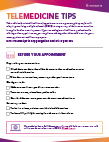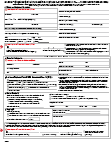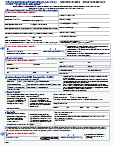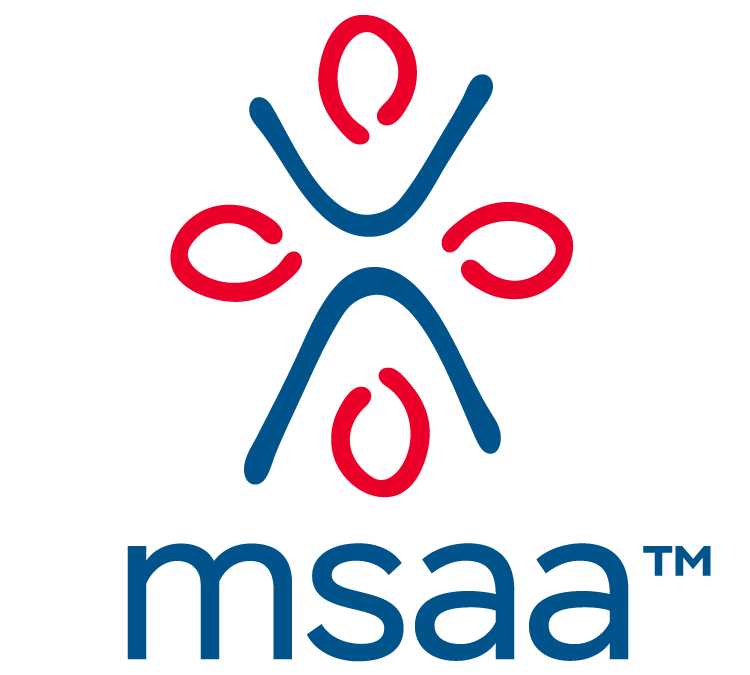Important Safety Information
You should not take GILENYA if in the last 6 months you experienced heart attack, unstable angina, stroke or mini-stroke (transient ischemic attack or TIA),
or certain types of heart failure. Do not take GILENYA if you have an irregular or abnormal heartbeat (arrhythmia), including a heart finding called prolonged QT as seen on an ECG, or if you take medicines that change your heart rhythm.
Do not take GILENYA if you are allergic to fingolimod or any of the other ingredients.
Indication
GILENYA is a prescription medicine used to treat relapsing forms of multiple sclerosis (MS), to include clinically isolated syndrome, relapsing-remitting disease,
and active secondary progressive disease, in adults and children 10 years of age and older.
GILENYA may cause serious side effects such as:
-
Slow heart rate, especially after first dose. Adults and children will be monitored by a health care professional for at least 6 hours after the first dose or after a child takes the
first dose of 0.5mg of GILENYA when switching from 0.25mg daily dose. Your pulse and blood pressure will be checked hourly. You'll get an ECG before and 6 hours after your first dose.
If any heart problems arise or your heart rate is still low, you'll continue to be monitored. If you have any serious side effects, especially those that require treatment with other medicines,
or if you have certain types of heart problems, or if you're taking medicines that can affect your heart, you'll be watched overnight. If you experience slow heart rate, it will usually return to normal within 1 month.
Call your doctor, or seek immediate medical attention if you have any symptoms of slow heart rate, such as dizziness, tiredness, feeling like your heart is beating slowly or skipping beats, or chest pain. Symptoms can happen up to 24 hours after the first dose.
Call your doctor if you miss 1 or more doses of GILENYA—you may need to repeat the 6-hour monitoring.
-
During pregnancy. Consult your doctor before getting pregnant.
You should avoid becoming pregnant while taking GILENYA or in the 2 months after you stop taking it because of the risk of harm to the baby.
-
Increased risk of serious infections, some of which could be life threatening and cause death.
You should not receive live vaccines during treatment with GILENYA and for 2 months after you stop taking GILENYA.
Vaccines may not work as well when given during treatment with GILENYA. Because GILENYA has an increased risk of human papilloma virus (HPV),
women should consult their doctor about a routine pap-smear. GILENYA lowers the number of white blood cells (lymphocytes) in your blood. This will usually go back to normal
within 2 months of stopping GILENYA. Your doctor may do a blood test to check your white blood cells before you start GILENYA. Call your doctor right away if,
while taking GILENYA or for 2 months after your last dose, you have fever, tiredness, body aches, chills, nausea, vomiting, or headache accompanied by fever, neck stiffness,
sensitivity to light, nausea, and/or confusion. These may be symptoms of meningitis.
-
Progressive multifocal leukoencephalopathy (PML). PML is a rare brain infection that usually leads to death or severe disability.
If PML happens, it usually happens in people with weakened immune systems but has happened in people who do not have weakened immune systems.
Call your doctor right away if you have any new or worsening symptoms of PML that have lasted several days, including changes in your thinking or memory,
changes in your vision, decreased strength, problems with balance, weakness on 1 side of your body, loss of coordination in your arms and legs, confusion, or changes in your personality.
-
Macular edema, a vision problem that can cause some of the same vision symptoms as an MS attack (optic neuritis), or no symptoms.
If it happens, macular edema usually starts in the first 3 to 4 months after starting GILENYA. Your doctor should test your vision before you start GILENYA,
3 to 4 months after you start GILENYA, and any time you notice vision changes. Vision problems may continue after macular edema has gone away.
Your risk of macular edema is higher if you have diabetes or have had an inflammation of your eye (uveitis). Call your doctor right away if you have blurriness, shadows,
or a blind spot in the center of your vision; sensitivity to light; or unusually colored vision.
-
Swelling and narrowing of the blood vessels in your brain. A condition called PRES (posterior reversible encephalopathy syndrome) has happened rarely in adults taking GILENYA.
Symptoms of PRES usually get better when you stop taking GILENYA. However, if left untreated, it may lead to a stroke. Call your doctor right away if you experience any symptoms,
such as sudden severe headache, sudden confusion, seizures, or sudden loss of vision.
-
Liver damage. Your doctor should do blood tests to check your liver before you start GILENYA and periodically during treatment.
Call your doctor right away if you have nausea, vomiting, stomach pain, tiredness, loss of appetite, dark urine, or if your skin
or the whites of your eyes turn yellow.
-
Breathing problems. Some patients have shortness of breath. Call your doctor right away if you
have trouble breathing.
-
Severe worsening of MS after stopping GILENYA. Many people who have worsening of MS symptoms after
stopping GILENYA do not return to the level of function that they had before or during treatment with GILENYA.
This can also occur in women stopping due to pregnancy or planning a pregnancy. This worsening happens most often
within 12 weeks after stopping GILENYA, but can happen later. Do not stop taking GILENYA without talking with
your doctor. Tell your doctor if you have worsening symptoms of MS after stopping GILENYA.
-
Increases in blood pressure (BP). BP should be monitored during treatment.
-
Cancers including basal, squamous, and Merkel cell carcinomas and melanoma. Tell your doctor if you have any changes in the
appearance of your skin, including changes in a mole, new darkened area in your skin, a sore that does not heal, or
growths on your skin such as a bump that may be shiny, pearly white, skin colored, or pink. While taking GILENYA,
limit the amount of time you spend in sunlight and ultraviolet (UV) light as well as use sunscreen with a high sun protection
factor and wear protective clothing. Lymphoma has also occurred in patients receiving GILENYA.
GILENYA may harm your unborn baby. Talk to your doctor if you are pregnant or planning to become pregnant.
Women should stop taking GILENYA 2 months before trying to become pregnant. Women who can become pregnant should use effective
birth control while on GILENYA, and for at least 2 months after stopping. If you become pregnant while taking GILENYA, or within 2 months after stopping,
tell your doctor right away. It is not known if GILENYA passes into breast milk. Talk to your doctor about the best way to feed your baby if you take GILENYA.
A pregnancy registry is available for women who become pregnant during GILENYA treatment. For more information, contact the GILENYA Pregnancy Registry by calling
Quintiles at 1-877-598-7237, by e-mailing gpr@quintiles.com, or by going to
.
Tell your doctor about all your medical conditions, including if you had or now have an irregular or abnormal heartbeat;
stroke or mini-stroke; heart problems; a history of repeated fainting; a fever or infection, or if you are unable to fight infections
due to a disease or are taking medicines that lower your immune system, including corticosteroids, or have taken them in the past;
eye problems; diabetes; breathing or liver problems; or uncontrolled high blood pressure. Also tell your doctor if you have had chicken pox or have received the chicken pox vaccine.
Your doctor may test for the chicken pox virus, and you may need to get the full course of the chicken pox vaccine and wait 1 month before starting GILENYA.
Children 10 years and older should complete their vaccination schedule before starting GILENYA.
If you take too much GILENYA, call your doctor or go to the nearest hospital emergency room right away.
Tell your doctor about all the medicines you take or have recently taken, including prescription and over-the-counter medicines, vitamins, and herbal supplements.
The most common side effects with GILENYA were headache, abnormal liver tests, diarrhea, cough, flu, sinusitis, back pain, abdominal pain, and pain in arms or legs.
In the pediatric study:
You are encouraged to report negative side effects of prescription drugs to the FDA. Visit
or call 1-800-FDA-1088.1-800-FDA-1088.
Indication
GILENYA is a prescription medicine used to treat relapsing forms of multiple sclerosis (MS), to include clinically isolated syndrome, relapsing-remitting disease,
and active secondary progressive disease, in adults and children 10 years of age and older.
Please see full Prescribing Information, including Medication Guide.




























